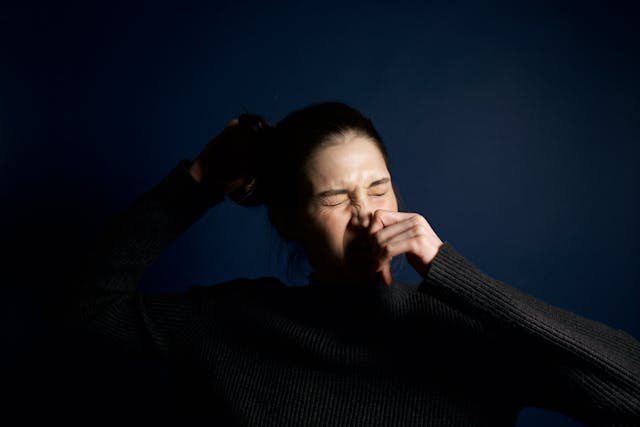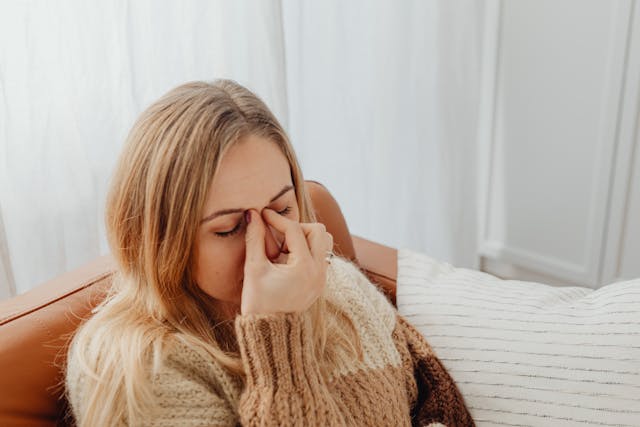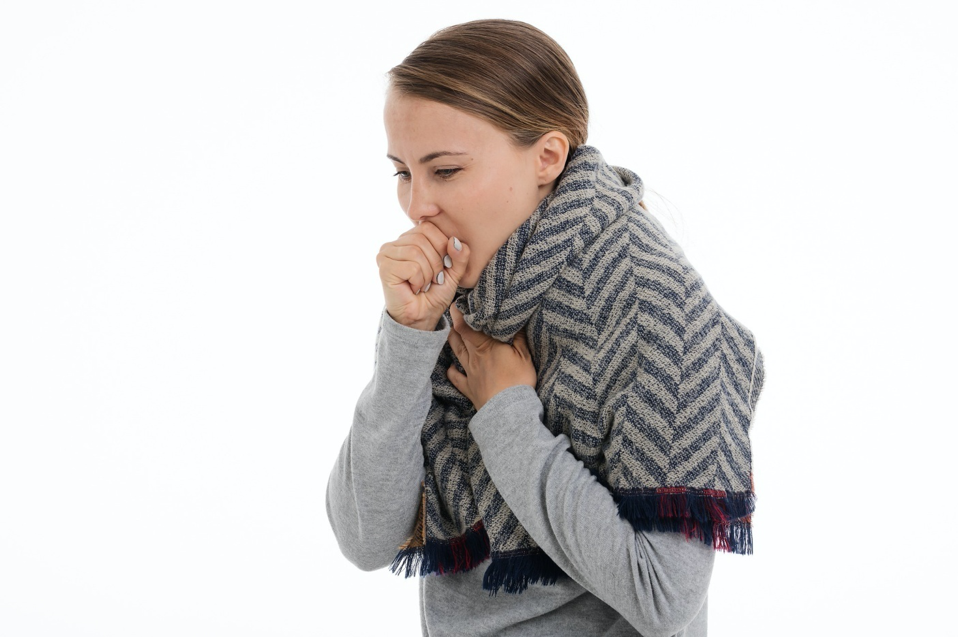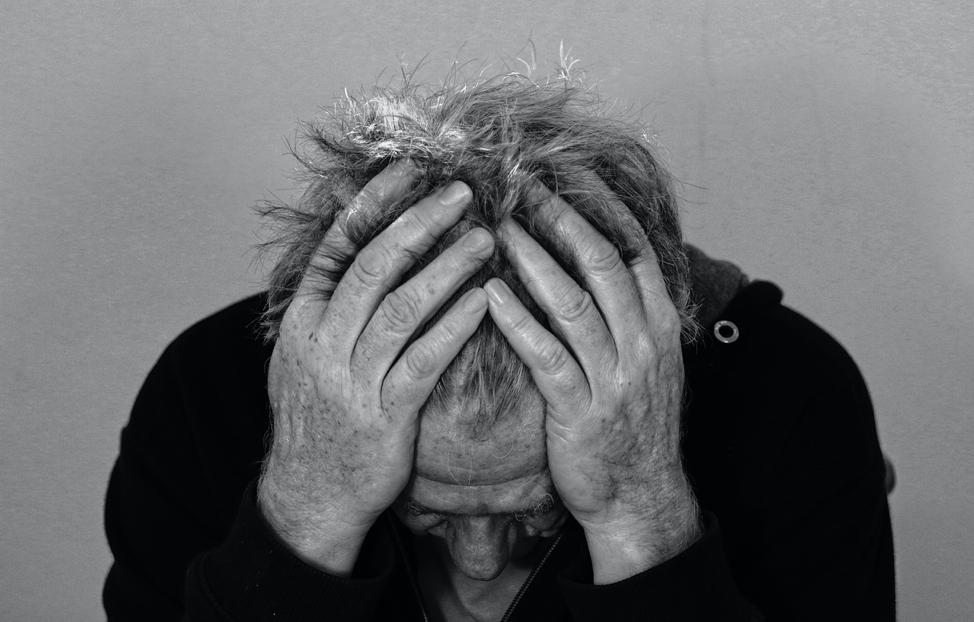Category Archives: Sinuses
Is It Allergies or a Sinus Infection? Key Differences Explained
Is it allergies or a sinus infection? Knowing how to tell the difference is essential for getting the right treatment—especially in a place like New York City where both conditions are common. Allergies and sinus infections (sinusitis) share similar symptoms such as nasal congestion, pressure, and headaches, but they have different causes and require different treatments.
This blog explains how to distinguish between the two and what to do if your symptoms persist or worsen.

Understanding the Root Causes
- Allergies: Allergic rhinitis is caused by an immune system overreaction to substances like pollen, pet dander, or dust mites. It’s a chronic condition that can flare up seasonally or year-round, depending on your triggers.
- Sinus Infections: Sinusitis is usually caused by a virus, bacteria, or fungus infecting the sinus cavities. It can follow a cold or respiratory infection and may be acute (short-term) or chronic (lasting longer than 12 weeks).
While both conditions inflame the nasal passages, allergies are immune-based, while sinus infections are typically infectious.
Key Symptom Differences
Although the symptoms overlap, there are some telltale signs that can help you tell allergies from sinus infections:
- Fever: Usually present with sinus infections, but not with allergies.
- Discolored Nasal Mucus: Thick yellow or green mucus often points to infection. Clear mucus is more typical of allergies.
- Itchy Eyes: Common with allergies, rare with sinus infections.
- Facial Pain/Pressure: Can occur with both, but is usually more intense and localized in sinus infections.
- Duration: Allergy symptoms may last for weeks or months. Acute sinus infections often resolve within 10–14 days, although chronic cases may linger.
If symptoms worsen over time or persist beyond 10 days with facial pressure and fever, it’s likely an infection.
Diagnosis: What to Expect at the Allergy Clinic
A board-certified allergist will conduct a thorough medical history and may recommend:
- Skin Prick Testing: To identify allergens like mold, pollen, or dust mites.
- Blood Tests (IgE): To confirm allergic responses.
- CT Scan or Nasal Endoscopy: In cases of chronic sinus infections, imaging may be necessary to evaluate structural blockages or chronic inflammation.
Correct diagnosis is essential to avoid using antibiotics when they’re unnecessary or ineffective.
Treatment Options for Each Condition
Allergy Treatment Options:
- Antihistamines and nasal corticosteroids to reduce symptoms.
- Decongestants for temporary relief of nasal swelling.
- Allergy immunotherapy (shots or drops) to desensitize the immune system over time.
- Environmental controls like HEPA filters and allergen-proof bedding.
Sinus Infection Treatment Options:
- Saline nasal rinses to flush out the sinuses.
- Decongestants to promote sinus drainage.
- Antibiotics (only if a bacterial infection is confirmed).
- Steroid sprays to reduce inflammation in chronic cases.
Patients who suffer from recurring sinus infections may benefit from further evaluation to rule out allergies or structural issues.
When Allergies Lead to Sinus Infections
In some cases, untreated allergies can set the stage for sinus infections. Constant inflammation and mucus buildup create the perfect breeding ground for bacteria. That’s why managing allergies can help prevent sinus problems altogether. Patients who treat their allergies often experience fewer sinus infections and a better quality of life.
Take the First Step Toward Relief
If you’re unsure whether your symptoms are caused by allergies or a sinus infection, don’t guess—get answers from a qualified expert. Schedule a comprehensive evaluation with Dr. Boyan Hadjiev today for personalized allergy and sinus care in NYC.
Allergy, Asthma and Sinusitis P.C
Boyan Hadjiev, MD
30 East 40th Street
Suite 1200
New York, NY 10016
212-319-5282
The Link Between Allergies and Sinus Infections
Is there a link between allergies and sinus infections? For many New Yorkers, seasonal allergies are more than just a nuisance — they can lead to chronic sinus problems that severely impact quality of life. If you frequently experience sinus infections, your allergies might be playing a bigger role than you realize. Dr. Boyan Hadjiev, better known as “Dr. Sneeze,” is NYC’s top allergist and shares expert insights on how allergies and sinus infections are closely connected — and how you can break the cycle.

How Allergies Can Lead to Sinus Infections
When you suffer from allergies, your immune system overreacts to harmless substances like pollen, pet dander, mold, and dust mites. This overreaction causes inflammation in the nasal passages, leading to swelling, mucus production, and congestion.
Here’s how allergies can trigger sinus infections:
- Swollen Nasal Tissues: Allergy-induced swelling blocks normal mucus drainage from the sinuses, creating a moist environment where bacteria can thrive.
- Increased Mucus Production: Allergies cause excessive mucus production, which can become trapped and infected.
- Weakened Immune Response: Constant allergic reactions can weaken your body’s ability to fight off infections effectively.
Signs That Allergies Are Leading to Sinus Infections
Recognizing the connection between your allergies and sinus infections can help you seek timely treatment. Warning signs include:
- Frequent or recurrent sinus infections (more than four times a year)
- Sinus infections that last longer than 10 days or worsen after initial improvement
- Persistent nasal congestion, postnasal drip, and facial pressure during allergy seasons
- Difficulty breathing through the nose combined with allergy symptoms like sneezing and itchy eyes
Preventing Allergy-Related Sinus Infections
Breaking the cycle of allergies leading to sinus infections requires a proactive approach. Dr. Sneeze recommends the following strategies:
1. Control Your Allergies
Managing allergies is the first line of defense against sinus infections. Treatment options include:
- Antihistamines: Help reduce allergic reactions and nasal inflammation.
- Nasal Corticosteroids: Relieve nasal swelling and promote normal sinus drainage.
- Allergy Immunotherapy (Allergy Shots): Gradually desensitize your immune system to specific allergens, providing long-term relief.
2. Practice Good Nasal Hygiene
Keeping your nasal passages clear can prevent mucus buildup and infection:
- Use saline nasal sprays or perform nasal irrigation with a neti pot to flush out allergens and mucus.
- Keep indoor air clean with HEPA filters and maintain proper humidity levels.
- Avoid exposure to known allergens whenever possible, especially during high pollen seasons.
3. Seek Early Treatment for Allergy Symptoms
Don’t wait until symptoms worsen. Early treatment from an allergist like Dr. Sneeze can help control inflammation before it leads to infection. If you notice a pattern of sinus infections tied to your allergy flare-ups, it’s time for a comprehensive allergy evaluation.
Treatment Options for Sinus Infections
If sinus infections do occur, effective treatment can prevent complications:
- Decongestants: Help reduce sinus swelling and promote drainage.
- Antibiotics: Prescribed if a bacterial infection is confirmed and symptoms are severe or persistent.
- Advanced Procedures: For chronic sinusitis, minimally invasive options like balloon sinuplasty can restore proper sinus drainage.
Why See an Allergist for Allergy-Related Sinus Problems?
Seeing a specialist like Dr. Sneeze ensures a complete evaluation of both your allergies and sinus health. At Allergy, Asthma and Sinusitis P.C., you’ll receive:
- Comprehensive allergy and sinus diagnostics
- Customized treatment plans based on your specific triggers and symptoms
- Access to the latest therapies to prevent future infections and improve quality of life
The Link Between Allergies and Sinus Infections: Contact NYC’s Leading Allergy and Sinus Expert
For many New Yorkers, seasonal allergies are more than just a nuisance — they can lead to chronic sinus problems that severe
If you’re tired of the endless cycle of allergies and sinus infections, expert help is just a call away. Schedule an appointment with Dr. Boyan Hadjiev, “Dr. Sneeze,” at:
Allergy, Asthma and Sinusitis P.C
Dr. Boyan Hadjiev
30 East 40th Street
Suite 1200
New York, NY 10016
212-319-5282
Take control of your allergies and sinus health today with personalized care from NYC’s top allergist. Breathe easier, feel better, and live your best life!
Do You Have A Sinus Infection?
A Sinus infection is a common health problem around the world. Many people who fall victim to it have allergies, structural blockages in the nose or sinuses, asthma, or just a weak immune system.
Sinus is a cavity in any tissue or organ of the human body. Sinus terminology is also referred to as an abnormal cavity caused by the destruction of tissues. Commonly, the word sinus refers to the paranasal sinuses. It is the air cavity in the cranial bones, especially bones near the nose.
A sinus infection occurs when the membrane linings in the sinus cavities suffer from inflammation or infection. If not treated, it can get severe and eventually affect the lungs.
More than 30 million people are diagnosed with a sinus infection each year in the United States. A sinus infection usually occurs from early fall to early spring. Rhinosinusitis affects 35 million individuals per year in the United States 14% of whom are adults.
Symptoms of Sinus Infection
The signs of a sinus infection are as follows:
- Headache
- Fever
- Cough
- Sinus pressure behind the cheeks and the eyes
- A runny nose
- Bad breath
- Mucus with green colors and thickness
- Fatigue
- Sense of smell reduces
Types of Sinus Infection
An allergen, virus, and bacteria can be the cause of sinus. There are various types of sinus infection.
1. Viral Sinusitis
Viral infection can lead to infection, called viral sinusitis. It affects the membrane lining of your nasal cavity, ear, or nose. It mostly occurs when the upper respiratory got infected.
The symptoms of viral sinusitis are the same as a cold. That includes a sore throat, sneezing, runny nose, coughing, and nasal congestion. Mucus is commonly clear or slightly colored during a sinus infection.

Antibiotics are not effective for viral infection. The best treatment is that you take rest as much as you can and drink more fluids. Use saline nasal sprays and take pain relievers for relief during the treatment process.
Viral sinusitis typically resolves in 7-10 days.
2. Bacterial Sinusitis
Bacterial sinusitis is a bacterial infection of the paranasal sinuses. Paranasal sinuses are the hollow spaces in the bones of the face and nose. Bacterial sinusitis is when bacteria inflame the mucous membrane lining of the sinuses.
There are four pairs of paranasal sinuses called the maxillary sinuses, ethmoid sinuses, frontal sinuses, and sphenoidal sinuses. Maxillary sinuses usually suffer from bacterial infection.
Symptoms of bacterial infection are thick green or yellow nasal discharge. The nasal passage is swollen, and mucus drips down the back of the throat; this is called post-nasal drip. Some people also feel facial pain and pressure.
3. Chronic Sinusitis
During chronic sinusitis, symptoms persist for a long time. Symptoms like nasal congestion and post-nasal drainage are more common. If a person coughs at night or when they wake up, it is a symptom of chronic sinusitis. This means that you have a severe sinus infection.
People who have nasal polyps can get infected by chronic infection. For the treatment, nasal steroid sprays are usually suggested by doctors.
4. Allergic Sinusitis
This infection usually occurs in childhood. It is a reaction of inhaling allergens like dust, smoke, and animal dander. If you have a family history of sinuses, you are more likely to suffer from allergic sinusitis. You are more sensitive to allergens and food.
Acute allergic sinusitis can last up to four weeks and chronics last more than eight weeks. Symptoms include nasal congestion, headache, and pain around the cheeks, forehead, and nose and between the eyes. You may also feel itchiness in eyes, nose, and throat. You may face sleeping problems and a reduced sense of taste and smell.
The Bottom Line
You may have a sinus infection if you are experiencing a headache, pain in the eyes, nose, and throat, or thick mucus. Sinus infection can be very painful and requires instant treatment so that it doesn’t get worse.
If you have symptoms of viral, allergic, bacterial, and chronic sinusitis, call the best NYC Allergist Dr. Sneeze to treat your sinus infection. We are the top specialists in New York to diagnose and treat sinus infections.
Visit our website or call us for an in-person or tele-medicine appointment 212-319-5282.
Serving all of New York City and the Tri State Area including Zip Codes: Top Allergist NYC Midtown, Chelsea and Clinton: 10001, 10011, 10018, 10019, 10020, 10036 | Gramercy Park and Murray Hill: 10010, 10016, 10017, 10022 | Greenwich Village and Soho: 10012, 10013, 10014 | Lower Manhattan: 10004, 10005, 10006, 10007, 10038, 10280 | Lower East Side: 10002, 10003, 10009 | Upper East Side: 10021, 10028, 10044, 10128 | Upper West Side: 10023, 10024, 10025

